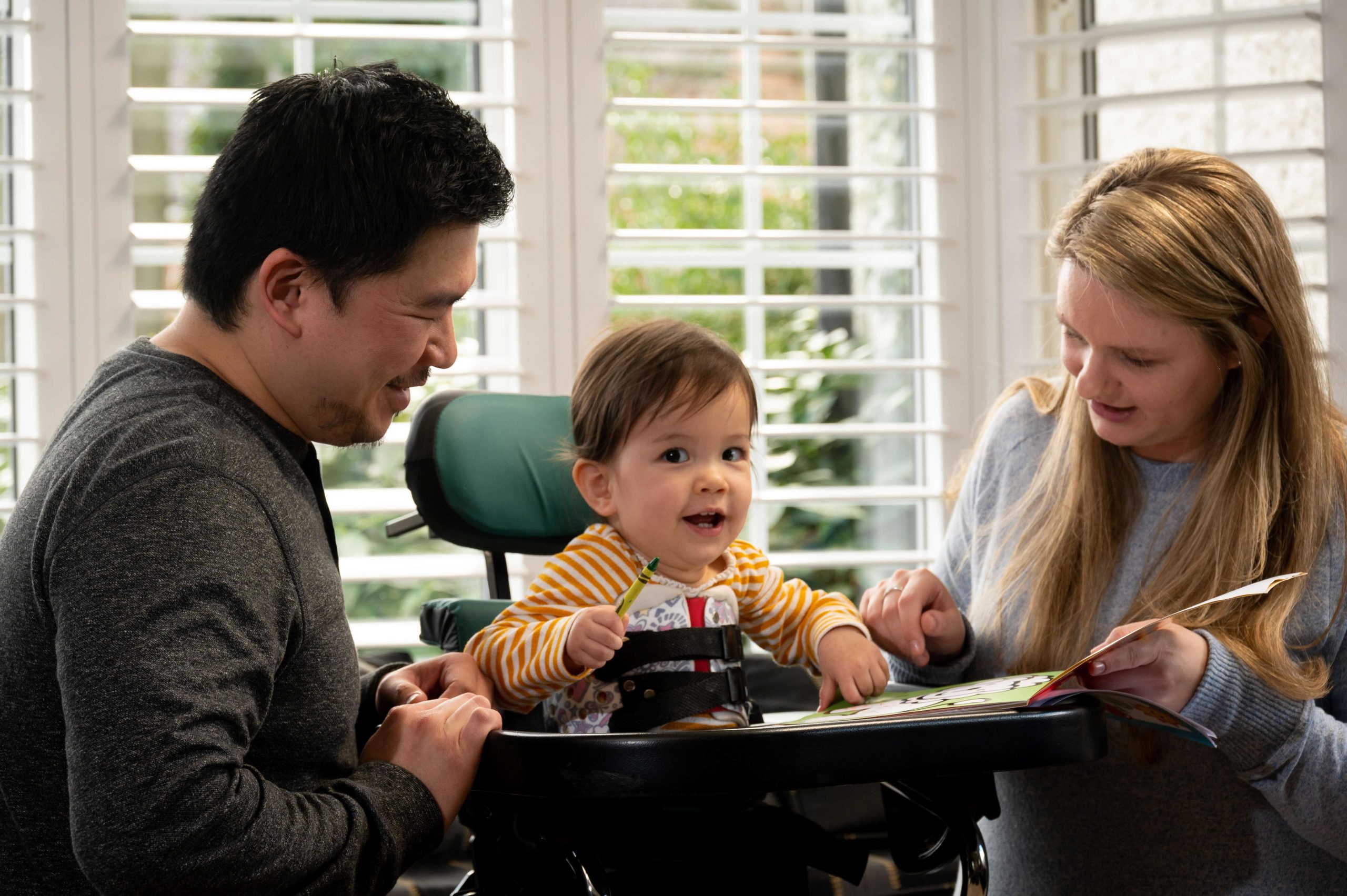Children (0-12 years) Life in General

Children (0-12 years) Life in General
Last Updated: April 2024
We are often asked about toys and activities for babies and young children with SMA. You can find suggestions and practical tips, including many ideas from parents in the SMA community on this page.
We have also made these into a booklet ‘Toys, Play & Activities for Babies and Young Children who have SMA‘. You can download a copy here or request a printed copy.
Families adjusting to the accessibility needs of their children often ask:
- What do I need to think about and change at home?
- What help is there to do this?
- How do I get it?
- What happens next?
We have put together some answers along with suggestions from the SMA Community and our Support Team.
Many local activities and groups will be keen to include your child. That might be school clubs, Brownies, Scouts, church and other youth groups.
Many national organisations also provide leisure activities for disabled children. They should be able to tell you about any clubs or activities they offer that are local to you. For information about these and ideas about the range of possible hobbies, clubs and sports out there.
SMA UK offers many ways to connect up with others::
- Virtual networks of parents, partners, grandparents and others – where people share experiences and ask questions.
- Community Podcasts and Videos where people talk openly and honestly about a whole range of topics.
- Community Voices where SMA Community members write about all sorts of experiences and thoughts.
- Community Events that we are running this year
In this recording Luis chats to 11 year old Sonny and his Mum Grace about life with SMA and the support of the Community:
Recorded August 2022
Assistance dogs
Popular with many families in the SMA Community, they can be trained to help with practical tasks such as:
- Picking up dropped items such as a toy or a remote control
- Opening and closing doors
- Helping with dressing and undressing
- Helping with physiotherapy routines.
This can mean that children are less reliant on others for some day-to-day activities, helping to build independence. Children’s confidence can also increase if they play as big a role as possible in their working dog’s care and training.
As with many dogs, working dogs provide loyal and unconditional friendship and company. They are also a great ice breaker and way of meeting and talking to people when out and about. Registered assistance dogs should be allowed to go with their owner into many public places, such as shops, restaurants and to travel on public transport.
There is, however, a ‘but’, which is that an assistance dog is a serious commitment that needs a lot of thought and planning.
If you are interested in an assistance dog for your child, there are organisations that can give advice. Some train and provide their own dogs; others provide training for people who already have a pet dog. Each organisation has its own application process and training scheme and can give information and advice about the responsibilities of dog owners as well. There are more options for young disabled people aged 16 years and over. The following are available for children under 16 years:
- Assistance Dogs UK
- Dog AID
- Dogs for Good (formerly Dogs for the Disabled)
- Support Dogs
Animal Companions
If you do not want an Assistance Dog, a well trained family dog could be a great addition and companion. Others prefer cats or other pets:
Sunny Every Day
Martyn and his fiancée, Kasia, got their dog Sunny in 2018. Find out why they decided to go for it and what Sunny means to them.
Marni – with Dylan the Goldendoodle & Buttercup the Chihuahua
Marni, who has SMA Type 2, talks about what Dylan and Buttercup mean to her.
Ross & Ralph
Ross, who has SMA Type 2, introduces his golden cockapoo called Ralph.
A break from your caring responsibilities can give you an opportunity to recharge your batteries. Taking a break does not mean you cannot cope or do not love your child. Caring is hard work and it is quite usual for families with children with SMA to have breaks. Short breaks can also give your child a change of scene, a chance to try different experiences, have fun and make friends.
Local authorities now have duties to provide short break services and make clear how families can access these. Short breaks can be:
- Day or overnight care at home with someone else providing the care
- Day care such as after school or weekend clubs or school holiday schemes
- Residential breaks at places such as hospices or activity centres
- Family link schemes where your child stays with another family on a regular basis or occasionally.
Find Your Local Authority (LA) to talk about getting short breaks services in your area and what funding might be possible.
Further information:
Contact – information about short breaks
Together for Short Lives – hospices or other short breaks services
Action for Children – Phone 0300 123 2112 – a range of short break service for disabled children.
Sebastian’s Action Trust in Hampshire and Berkshire – for families to access time together, away from the stresses of hospital and home
Happy Days Children’s Charity – Phone: 01582 755999 – provides breaks for individuals, families and groups who support children with a wide range of additional needs.
We may know of other charities that offer short breaks. If you cannot find something that will work for you, get in touch with SMA UK.
